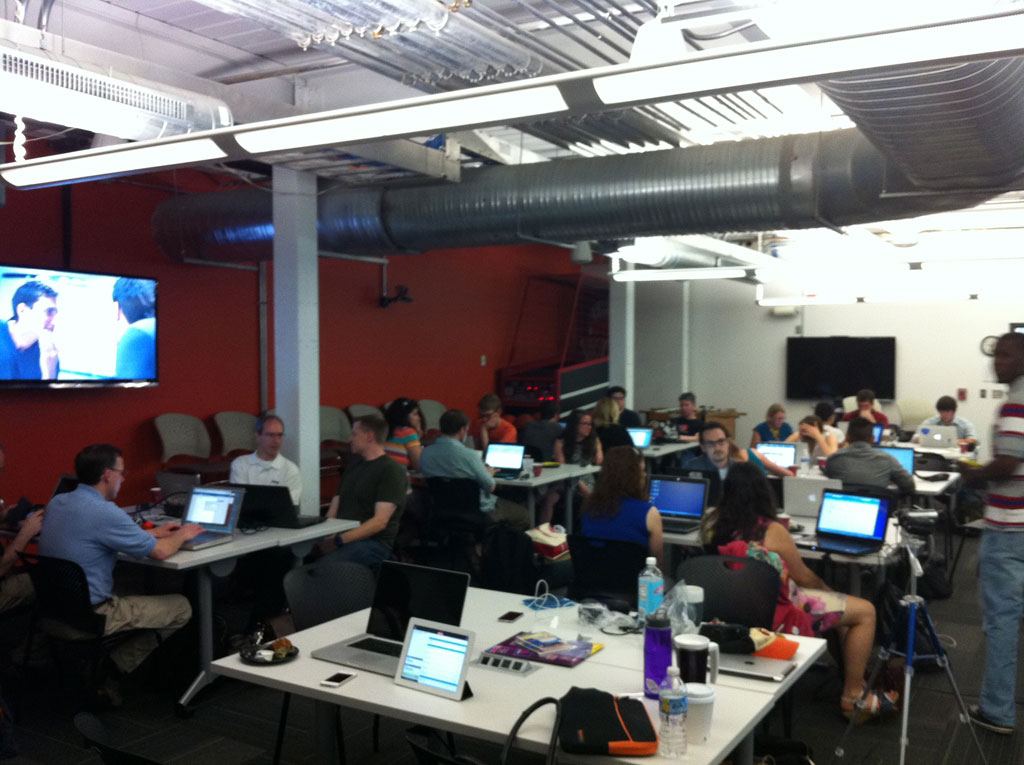In a newly available bid, the Mayor’s Office of Information Technology (MOIT) is looking to hire an outside vendor to “plan, manage, market, and provide ongoing support” for three City of Baltimore-sponsored hackathons in 2014, including a “long-form” civic hacking project of at least two months and similar in nature to the Hack the Parks civic hacking challenge that concluded in a demo day in late September.
- The chosen vendor will be “responsible for coordination and payment for all aspects of the three hackathon events, including prize and seed money,” but all three hackathon events “will be branded as MOIT events.”
- So the city is searching for an outside party to do the legwork in putting together a series of events where programmers, software developers and other interested parties will spend extended periods of time assembling tech-based projects, some of which will be required to have a strong civic bent.
- The outside party, however, must have the city’s blessing, hence this bidding process.
City CTO Chris Tonjes, now a little over a year into his role, has been a visible and vocal supporter of hackathons, including the city-sponsored Hack the Parks challenge and the Hack for Change civic hackathon in early June, where Heather Hudson was named Baltimore’s first chief data officer.
As the Atlantic Cities has reported, some, including the former CTO of Seattle, view hackathons — oftentimes from which come apps that are rarely used and make barely any money — as haphazard, feel-good events that accomplish little if anything at all.
But Tonjes seems to think more city government involvement in promoting and holding hackathons is a means to save money by making governmental processes more efficient and, the thinking goes, cheaper. In truth, other cities across the country have developed civic-developer communities around hackathons.
“We think that there’s a pipeline of innovation … [to] expand the conversation about how we deploy and use technology to solve government problems,” said Tonjes at June’s Hack for Change event, organized by gb.tc as the Baltimore-specific version of the National Day of Civic Hacking.
Moreover, MOIT has said it views hackathons as a way to reach out to a technology community sometimes overlooked by the local political establishment, while pushing to make government more transparent through the release of city agency data.
There’s already some precedent for this in Baltimore:
- For April’s Reinvent Transit hackathon, the Department of Transportation released several new datasets on OpenBaltimore.
- During Hack for Change, several city agencies worked with hackathon teams using city data that became available because a hackathon was being held.
- The bidding document explicitly says any vendor chosen should “identify relevant datasets” and “work, where possible, to facilitate open, public access to relevant datasets.”
As for the details of these hackathons:
- Two hackathons are for “standard duration” (one to three days), and one of these two must be a civic hackathon. The third must take place between May and August, and seed funding must be made available by the vendor so that teams can pilot hackathon projects before presenting them at a demo day open to the public.
- Hackathons, typically, are community-oriented, grassroots endeavors, which makes a bidding document for a vendor seem misplaced. But the document requires the chosen vendor to “involve new constituencies and make events inclusive,” “include community input,” “seek to find locations accessible by public transportation,” and “work with existing tech volunteer organizations” (the Digital Harbor Foundation, among others, is referenced). A separate outreach section of the bidding document repeats the mantra of inclusivity: “Vendor will work with community groups to involve as many City residents as possible with a focus on creating a diverse and inclusive event representative of Baltimore city.”
- All three hackathons must be free to participate.
It appears the vendor will be primarily responsible for furnishing the money to organize these hackathons. (One bullet-point reads: “City funds will not be used for the purchase of alcoholic beverages.”) Per the document: “Vendor will be responsible for all related expenditures, including prize money for participants.”
Join the conversation!
Find news, events, jobs and people who share your interests on Technical.ly's open community Slack

Baltimore daily roundup: Medtech made in Baltimore; Sen. Sanders visits Morgan State; Humane Ai review debate

Baltimore daily roundup: The city's new esports lab; a conference in Wilmington; GBC reports $4B of economic activity

Baltimore daily roundup: Find your next coworking space; sea turtle legislation; Dali raided and sued


